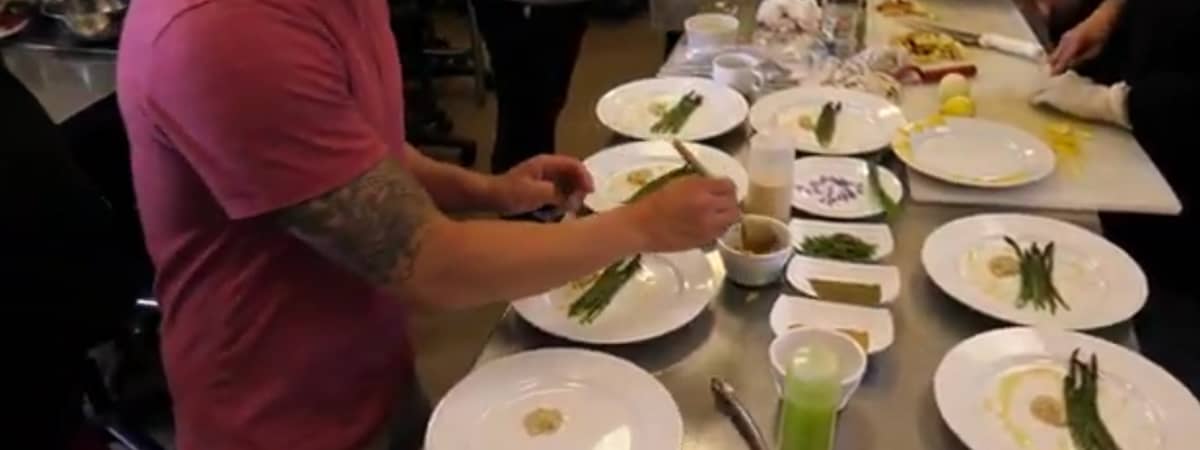Do you love food? Are you interested in health and wellness? Would you enjoy pursuing a career that can help to prevent diseases, save lives, and improve the quality of life for people in our community and beyond?
If you love to cook and bake and you enjoy experimenting and creating new and flavorful foods, Culinology® is the ideal major for you. It blends skills in culinary arts with an understanding of food science, to elevate the development of food products. This program is approved by the Research Chefs Association. It can prepare you to create the future of food in careers involving food science, technology, research, and quality assurance.
The Culinology® program at Allan Hancock College can prepare you for further education and a variety of jobs that are rewarding, personally and professionally. The nutrition and dietetics for transfer program is the first step in your path, leading to a wide variety of career options in nutrition, public health, and clinical settings.
You may pursue further education and training at a four-year university to become a Registered Dietitian Nutritionist (RDN), with opportunities to work in hospitals, healthcare agencies, food service companies, and many other areas involving nutrition education, counseling, and management. RDNs create personalized nutrition plans to achieve, restore, or support the health of patients and clients.
This program will help you to:
- synthesize nutrition science information in order to embody and improve health and promote longevity
- demonstrate proper culinary and baking techniques using various food products within a commercial facility
- design and produce recipes and menus that demonstrate culinary proficiency within a commercial food service facility
- compare and contrast the different responsibilities within the food service industry and various government agencies in applying regulations designed to prevent food borne illness
Degrees and Certificates Offered
Each program has unique requirements. The order in which you take courses may affect your completion time. Visit the links below to view the program requirements and a general semester-by-semester course schedule.
To view all available degrees and certificates visit the Allan Hancock College course catalog.
Programs you may also be interested in exploring...
Contact Information
Ron Lovell
Assistant Professor/Program Coordinator
Culinary Arts and Hospitality Management
Office: Community Education S-111
Office 805-922-6966 X 3823 | Cell 805-242-6745
rlovell@hancockcollege.edu
https://www.instagram.com/hancock_culinary
.
Department Chair
Thesa Roepke
805-922-6966 ext. 3436
troepke@hancockcollege.edu
Administrative Assistant
Sandra C. Orozco
805-922-6966 ext. 3401
sorozco@hancockcollege.edu
Dean, Academic Affairs
Thomas J. Lamica Jr. M.A.
805-922-6966 ext. 3261
Thomas.lamica@hancockcollege.edu
LOCATION
Santa Maria Campus
Bldg. H
805-922-6966 ext. 3401


